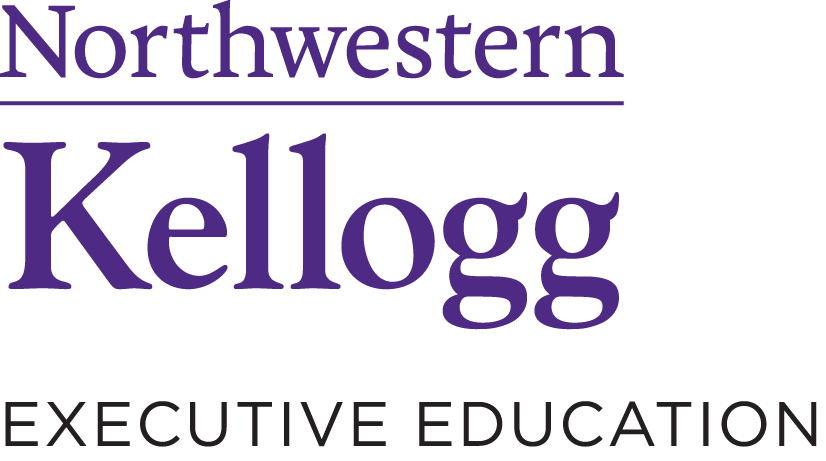- Innovation
Mind-and-Machine
Kellogg School of Management’s Brian Uzzi on how AI can offer the best of both worlds
Fire is the technology that elevated the human race to new levels of achievement. Fire, quite literally, changed everything.
For Brian Uzzi, the Richard L. Thomas Professor of Leadership and Organizational Change at the Kellogg School of Management, Northwestern University, AI is having a comparable impact on humanity as fire had those millennia ago. Perhaps with even greater significance, as Uzzi points out, “Humans did not need to understand the complex chemical properties of fire to use it and benefit from it. They needed to know its capabilities for heat, light, and protection, and if mismanaged its destructiveness. With an understanding of its capabilities, fire could be applied to solving problems of warmth, cooking, illumination, protection, iron making, culture making, extending the day, and more. A business leader’s use of AI can be thought of in a similar fashion. Most leaders do not have the computer science background needed to grasp the technical properties of AI. Nevertheless, with practical knowledge of AI’s capabilities they can use their business acumen to apply it successfully and productively to solving business problems.”
Professor Uzzi is an expert in artificial intelligence and machine-learning and is co-director of the Northwestern Institute of Complex Systems (NICO). He teaches extensively on the wide and varied impacts these new technologies will have on organizations, and is also Academic Director of the Kellogg program Leveraging AI for Innovation and Organizational Performance.
Uzzi’s central message for businesses perhaps, is that we can be overly obsessed with trying to understand what AI is, instead of asking what it can do.
Business—and the public sector too—are scrambling to discover how they can improve their performance by using AI. Uzzi says he speaks to hundreds of executives in all sectors that are desperate to acquire AI knowledge to enhance their organizations’ capabilities, and their own careers too—and a large majority of them believe they must understand the intricacies of how AI works.
As AI is expanding and advancing at such a fantastic rate, it is impossible for anyone to keep up with it, so all AI experts are by default becoming narrower and narrower in their breadth of AI knowledge, while their expertise deepens. This is, “the opposite of a broad view of a problem that business leaders thrive on,” says Uzzi.
……………………………………………………………………………………………………
Dates: 2-4 March; 28-30 September │ Format: In-class study │Location: Evanston IL
……………………………………………………………………………………………………
“AI is really about leadership and vision, and that's what our program is about. As a leader with a vision for growing your organization: how is AI going to be a partner for you in that?” he asks.
This is where the fire analogy comes in. No early human understood the chemical and physical properties and dynamics of fire, but they learnt through trial and experiment, and no doubt a lot of error, how to use it and what it could do to improve their lives.
For time-poor executives, Uzzi cites three reasons why they need to be devoting time to better understanding AI—not how it works, but what they can do with it:
- Executives need to analyse their pressing business problems and opportunities from the perspective of AI. With an understanding of AI’s capabilities, executives can solve problems, spearhead strategic initiatives, and avoid being blindsided by competitors.
- AI is the thing that converts the big data that companies have been collecting over the last 10 years into true riches. This is because it's the only thing that can go into the data and extract real insights. Those insights are of three types, all of which are crucial to success:
- Better operational efficiency—how do you get things done faster, better, cheaper.
- Developing strategies for exploiting new markets and new opportunities.
- Figuring out how the people in your organization communicate and coordinate, which is always the essence of innovation.
- These AI insights can be massively disruptive if correctly applied.
A frequent criticism of AI is that it is really just sophisticated pattern-spotting and cannot find anything truly new or innovative. Uzzi counters this argument by explaining that very few human innovations come, Mozart-like, with no previous pattern or recombination of prior ideas to be built on. Machines now consume, store and parse quantities of data so far beyond the capabilities of any human, that they can afford to make a lot of unnecessary computations in the search for identifying new and valuable combinations and outcomes.
On Wall Street, Uzzi points out, a trader may specialize in the FAANGs (Facebook, Amazon, Apple, Netflix, Google) and spend an entire career knowing everything about them, while an AI machine can do that plus 500 more companies, and draw conclusions based on that expanded knowledge. Or, of the million medical articles published each year, a doctor should perhaps read 500 to stay up-to-date (though probably reads far less than that), while a machine can read all million, plus the million from the previous year, and the year before that too. The data sets that big data offer, enable patterns to be spotted and insights drawn that were impossible to conceive of, only a few years ago, and executives need to be both aware of and comfortable handling these concepts.
Another important contribution that Uzzi sees AI potentially making for us is the removal of human errors in decision-making. Uzzi notes a piece of research where top doctors who were given ‘survival rate’ data prescribed surgery 84% of the time. However, when equally skilled and experienced doctors were given ‘fatality rate’ data for the same procedure, they only prescribed surgery 50% of the time. Survival rate and mortality rate data is the same information, but due to errors in decision-making unconscious decision biases attached to the words ‘survival’ and ‘fatality’ skewed their responses. AI would treat survival and mortality data equally. These fundamental biases are known and even the geniuses among us are susceptible to them. We try to correct them by connecting with teammates who balance cancel out our biases and incomplete information.
“The idea of the machine is that it can help you overcome your biases in the same way that a teammate may be able to help you overcome your biases.” The machine though, can help fill-in a vastly greater number of ‘blind spots’ than any individual team member could aid you with.
“This program, Leveraging AI for Innovation and Organizational Performance, is to begin to understand how the ‘mind-plus-machine’ partnership can enhance your leadership acumen,” Uzzi asserts, “and make AI algorithms your new team members, so you can have the best of both worlds.”
The Kellogg School of Management at Northwestern University is recognized globally as a pioneer in general management education that offers innovative academic opportunities for today’s leading thinkers
ARTICLES YOU MIGHT LIKE
VIEWPOINT
Cognitive neuroscientist, Lynda Shaw, explains how to understand and support intrapreneurs
DEVELOPING LEADERS QUARTERLY MAGAZINE AND WEEKLY BRIEFING EMAILS


































